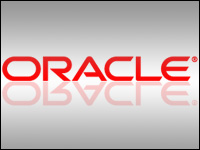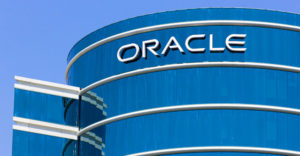
PeopleSoft, JD Edwards, Siebel and a host of others succumbed to the pull of its tractor beam. Could Salesforce.com be next on Oracle’s list?
Though this rumor has been around for several years as idle speculation, in the last several months it’s taken on new life. The tenor of the gossip has changed since a San Francisco tech publication and some bloggers havepicked up the scent of a possible deal in the works.
In “Conspiracy Theory Redux,” Brent Leary, cofounder and partner of CRM Essentials and author of Brent’s CRM Blog, says he likesa GoogleForce lineup even better, for more than a few reasons.
“It would make sense for either Microsoft or Google to be interested in Salesforce.com. But with Microsoft engaging in what appears to be a hostile takeover attempt of Yahoo, and getting ready to roll out it’s long awaited Live CRM service, I still have to go with GoogleForce. Mainly because I’d still be able to call 2008 the year of small business CRM. So I like that one more than the Oracle-Salesforce combo. If for no other reason than the name … OraForce … that’s just too close to orifice for my liking.”
$9 Billion and Counting
The rumored price of the acquisition has been as high as US$75 per Salesforce.com share, which would be a whopping $9 billion, Yankee Group analyst Sheryl Kingstone told CRM Buyer.
Whether or not it actually goes through will depend on CEO and founder Marc Benioff’s feelings about what it would mean for Salesforce.com, she speculated.
“This is Marc’s baby,” Kingstone remarked. “He basically developed this market from his base as a startup company. He deserves a lot of respect for that.”
Should he decide to go forward, a Salesforce.com acquisition would certainly rattle the market.
“Salesforce.com is a force to be reckoned with right now,” Kingstone said. “They are in every single deal.” Siebel — now owned by Oracle — is winning deals, but it does not have the necessary marketing momentum to overtake Salesforce.com.
Other market permutations are also fun to consider. If Oracle does buy Salesforce.com, Kingstone said, NetSuite will likely be scooped up — perhaps by SAP. “This is a market that everyone wants to get into.”
Single View of the Customer Debunked
Even the bitterest of competing vendors in the CRM space will agree that one of its fundamental goals is to provide a single view of the customer. Now along comes Ron Shevlin, vice president of strategic consulting at Epsilon, toblow that theory to pieces. As he writes in his blog, “the need for a single view of the customer is a myth that, while well-intentioned, is really quite a silly goal and concept.”
In making the case for dismantling the building blocks of CRM, Shevlin argues that “the statement that ‘everyone wants to know everything possible about your customers’ is ridiculous.”
Also, he says, “focusing efforts on integrating all sources of customer data potentially ignores important business-oriented questions like which data elements are most important to a particular task and what customer data elements don’t we have that would be valuable?”
Furthermore, “a single view of the customer is a blatant violation of privacy,” Shevlin contends.
He makes a good point: “Personally, I see no reason why the teller in my bank branch needs to know that I recently applied for a loan. Or worse, to see any of the details of that loan application.”
The CRM Consultant
Sometimes it’s good to go back to the basics, as Shevlin did in exploring whether having a 360-degree view of the customer is actually a good approach.
Blogger Richard Boardman took on another industry bugaboo: the role of the CRM consultant inrequirements gathering.
It may not be a sexy as a bank loan officer peering at your rejected application, but the role of a consultant in the due diligence process is important. Effective requirements definition probably goes 80 percent of the way to achieving a successful project and will lower purchase costs by about 50 percent, Boardman says. It’s often overlooked — usually at the client’s expense.
He writes: “The analyst hampered by a lack of technology or business understanding will tend to ask users to ‘self-diagnose’ and simply ask what they want from the system. They don’t have the knowledge to define requirements that the potential user may struggle to articulate or identify issues and needs that the user might not even be aware exist. They are like a doctor who demands the patient diagnoses their own medical condition.”























































